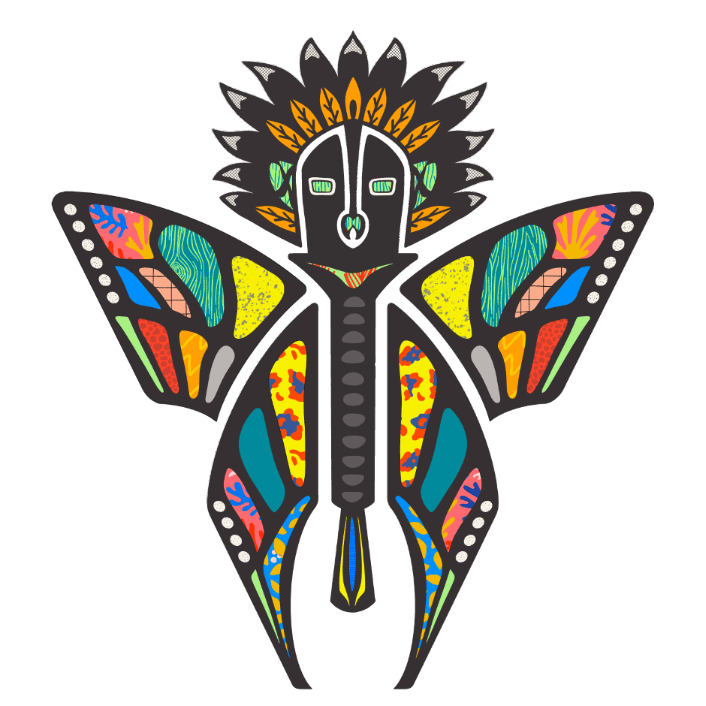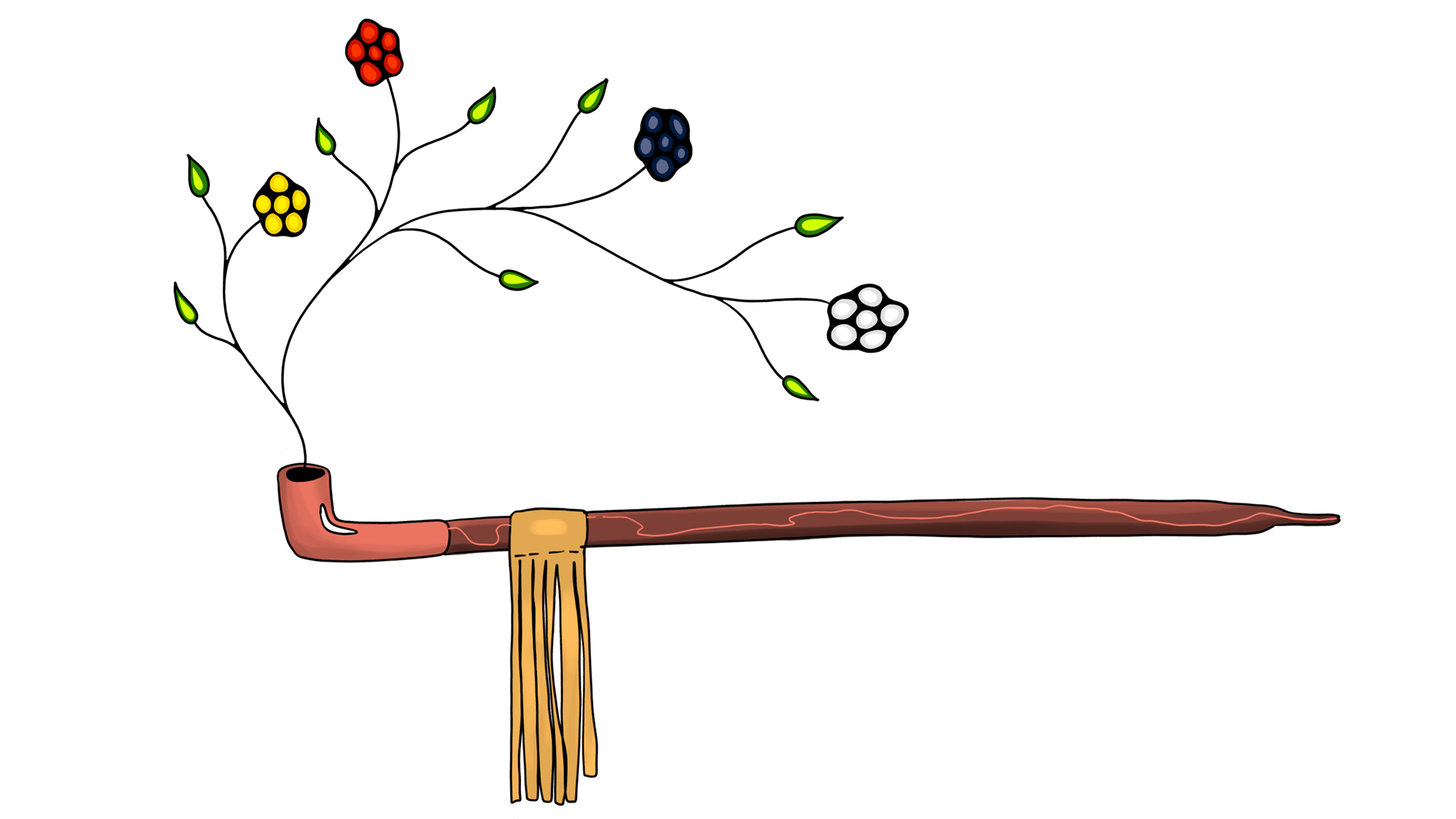Accountability and Rights
RIGHTS HOLDERS
Our community-centered work advocates for a rights-based approach when identifying what are commonly referred to as “stakeholders”. This is because Indigenous Peoples — and the lands, waters, plants, animals, etc. they relate to — have intrinsic rights, not “stakes”. As such, it’s imperative to respect the inherent sovereign rights and nation to nation relationships of First Nations, Inuit and Métis peoples. These rights are both collective and intrinsic and exist regardless of foreign legal systems. International rights mechanisms are crucial, however, for ensuring these rights are respected and upheld.
As this virtual hub serves a variety of people from many different Indigenous nations, international rights mechanisms help create a shared understanding of the minimum standards of Indigenous rights.
Therefore, a key consideration is for all visitors and users to respect the rights described by the United Nations Declaration on the Rights of Indigenous Peoples—alongside the rights and responsibilities described by Elders at the Centre for Wise Practices— to improve healthcare through access to traditional medicines, cultural safety and trauma-informed care.

Understanding Indigenous Health from a Rights-Based Perspective
“We are rights holders coming in for health care (we’re not a radicalized, marginalized group)”. ~Diane Longboat GCWP-IH Decision Making Council Elder
“Crown land is land held for the use and benefit of Indigenous Nations”. ~UNDRIP, Human Rights Codes, Treaties.
“Crown General responsibilities? It was the Crown that made the treaties, not Canada.” ~Diane Longboat GCWP-IH Decision Making Council Elder
Respecting Indigenous laws and rights by acting on the TRC Calls to Action and the MMIWG2ST Calls for Justice is a core focus for our Centre. The GCWP-IH is also engaged in Indigenous knowledge translation, health equity research, public health policy and advocacy for ensuring that women, men, gender diverse, 2-spirit and trans people have access to safe medical care.
Truth and Reconciliation Commission Calls to Action for Education
“We are beyond 150 years of Canadian paternalism over Indigenous education. Each year the Calls to Action that address structural discrimination go without implementation, another generation of Indigenous kids and youth suffer at home and in school. It’s alarming that the federal government continues to underfund Indigenous education, and particularly First Nations children and youth — whose lives, as noted in the TRCs section and recommendations on child welfare, which are more broadly underfunded — leading to exponential and compounding harm that will not end without real tangible commitments to structural change and substantial funding.”
Source: yellowheadinstitute.org/trc
Education for Reconciliation
- 62. We call upon the federal, provincial and territorial governments, in consultation and collaboration with survivors, Aboriginal peoples and educators, to:
- Make age-appropriate curriculum on residential schools, Treaties and Aboriginal peoples’ historical and contemporary contributions to Canada a mandatory education requirement for kindergarten to gradevtwelve students.
- Provide the necessary funding to post-secondary institutions to educate teachers on how to integrate Indigenous knowledge and teaching methods into classrooms.
- Provide the necessary funding to Aboriginal schools to utilize Indigenous knowledge and teaching methods in classrooms.
- Establish senior-level positions in government at the assistant deputy minister level or higher dedicated to Aboriginal content in education.
- 63. We call upon the Council of Ministers of Education, Canada to maintain an annual commitment to Aboriginal education issues, including:
- Developing and implementing kindergarten to grade twelve curriculum and learning resources on Aboriginal peoples in Canadian history and the history and legacy of residential schools.
- Sharing information and best practices on teaching curriculum related to residential schools and Aboriginal history.
- Building student capacity for intercultural understanding, empathy and mutual respect.
- Identifying teacher-training needs relating to the above.
- 64. We call upon all levels of government that provide public funds to denominational schools to require such schools to provide an education on comparative religious studies, which must include a segment on Aboriginal spiritual beliefs and practices developed in collaboration with Aboriginal Elders.
- 65. We call upon the federal government, through the Social Sciences and Humanities Research Council, in collaboration with Aboriginal peoples, post-secondary institutions, educators and the National Centre for Truth and Reconciliation and its partner institutions to establish a national research program with multi-year funding to advance understanding of reconciliation.
- 66. We call upon the federal government to establish multi-year funding for community-based youth organizations to deliver programs on reconciliation and to establish a national network to share information and best practices.
Report Summaries for Health and Wellness:
- 3.1 Ensure the rights to health and wellness of Indigenous Peoples; specifically of Indigenous women, girls and 2SLGBTQQIA people, are recognized and protected on an equitable basis.
- 3.2 Provide adequate, stable, equitable and ongoing funding for Indigenous-centred and community-based health and wellness services that are accessible, culturally appropriate and meet the needs of Indigenous women, girls and 2SLGBTQQIA people.
- 3.3 Support First Nations, Inuit and Métis communities to call on Elders, Grandmothers and other Knowledge Keepers to establish community-based, trauma-informed programs for survivors of trauma and violence.
- 3.4 Ensure all Indigenous communities receive resources for the establishment of sustainable, permanent, no-barrier, preventative, accessible, holistic, wraparound services; including mobile trauma and addictions recovery teams, paired with other essential services such as mental health services and sexual exploitation and trafficking services.
- 3.5 Establish culturally competent and responsive crisis response teams in all communities and regions, to meet the immediate needs of an Indigenous person, family and/or community after a traumatic event, alongside ongoing support.
- 3.6 Ensure equality in the funding of services for Indigenous women, girls and 2SLGBTQQIA people, as well as equality for Indigenous-run health services.
- 3.7 Provide continual and accessible healing programs and support for all children of missing and murdered Indigenous women, girls and 2SLGBTQQIA people and their family members. Specifically, we call for the permanent establishment of a fund akin to the Aboriginal Healing Foundation and related funding.
Calls for Justice Directed at Industry, Institutions and Service Providers:
- 7.1 Recognize that Indigenous Peoples are the experts in caring for and healing themselves, and that health and wellness services are most effective when they are designed and delivered by the Indigenous Peoples they are supposed to serve.
- 7.2 Ensure that health and wellness services for Indigenous Peoples include supports for healing from all forms of unresolved trauma.
- 7.3 Support Indigenous-led prevention initiatives in the areas of health and community awareness.
- 7.4 Provide necessary resources to support the revitalization of Indigenous health, wellness and child and Elder care practices.
- 7.5 Provide resources for specialized intervention, healing and treatment programs, services and initiatives offered in Indigenous languages.
- 7.6 Ensure all persons involved in the provision of health services to Indigenous Peoples receive ongoing training, education and awareness in areas including the history of colonialism, anti-bias and anti-racism, local language and culture, local health and healing practices.
- 7.7 Encourage, support and equitably fund Indigenous people to train and work in the area of health and wellness.
- 7.8 Create opportunities and provide socio-economic incentives to encourage Indigenous people to work within the health and wellness field and within their communities.
- 7.9 Develop and implement awareness and education programs for Indigenous children and youth on the issue of grooming for exploitation and sexual exploitation.
